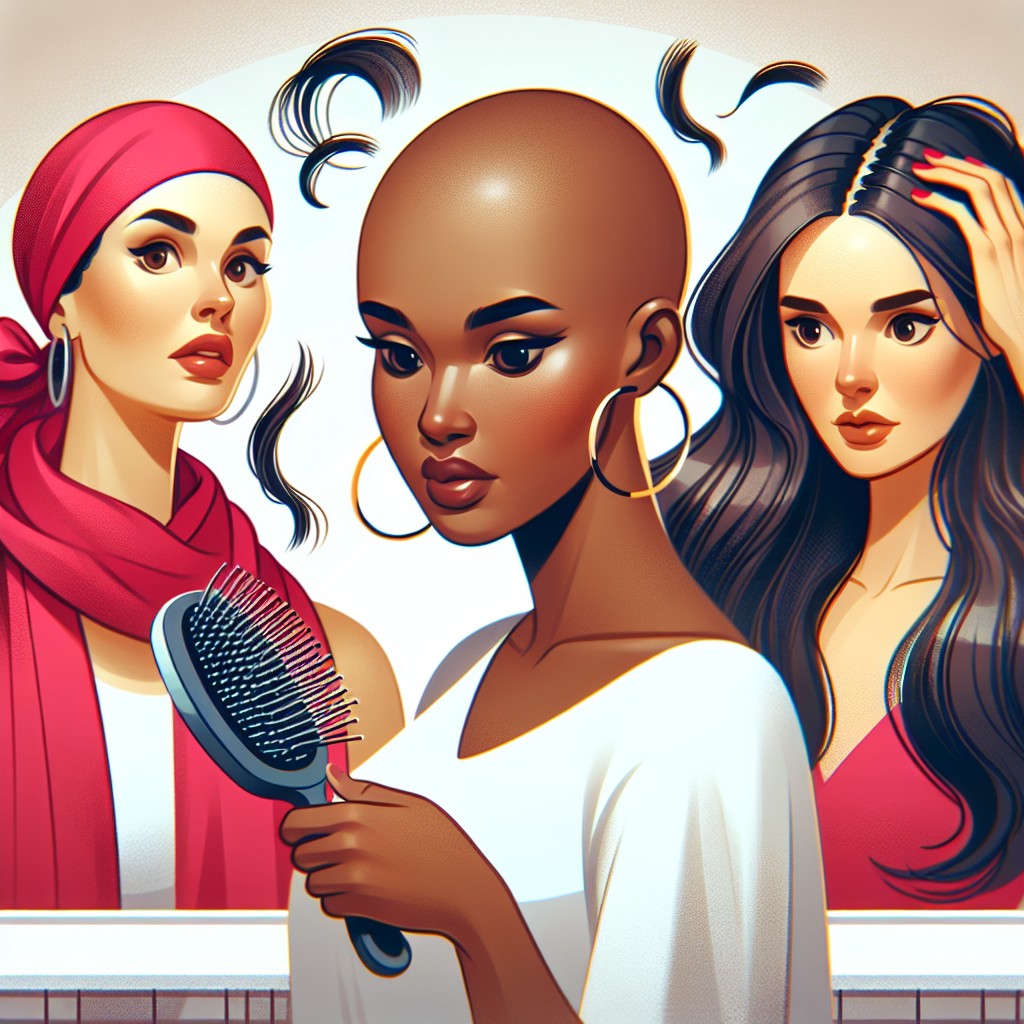Women's Hair Loss: Causes and Solutions for Thicker, Fuller Hair
Losing hair can be a distressing experience for women. Our hair is often seen as a symbol of femininity and beauty, so when we notice thinning or bald spots, it can have a significant impact on our self-esteem and confidence. Women's hair loss can be caused by various factors, but the good news is that there are solutions available to help promote thicker, fuller hair. In this article, we will explore the causes of women's hair loss and discuss some effective solutions.
Causes of Women's Hair Loss
1. Hormonal Imbalance: Hormonal changes can affect the hair growth cycle. Pregnancy, menopause, or conditions like polycystic ovary syndrome (PCOS) can cause hair loss by disrupting the normal balance of hormones in the body.
2. Genetics: Just like men, women can also inherit a genetic predisposition to hair loss. Female pattern hair loss (FPHL) is the most common type of hair loss in women and is characterized by a gradual thinning of the hair on the top of the head.
3. Stress: High levels of stress can lead to hair loss or hair thinning. Stress-induced hair loss, also known as telogen effluvium, occurs when a significant number of hair follicles enter the resting phase prematurely due to stress.
4. Nutritional Deficiencies: A lack of essential nutrients like iron, zinc, biotin, and vitamins A, C, and E can contribute to hair loss. These nutrients play a crucial role in promoting healthy hair growth.
5. Hairstyling Practices and Products: Excessive heat styling, chemical treatments, and tight hairstyles can cause hair breakage and traction alopecia, which is a form of hair loss caused by tension on the hair.
Solutions for Thicker, Fuller Hair
1. Balanced Diet: A well-balanced diet that includes foods rich in vitamins, minerals, and proteins is essential for healthy hair growth. Incorporate foods like salmon, eggs, spinach, nuts, and seeds into your diet to provide the necessary nutrients for your hair.
2. Supplements: If you're unable to obtain all the nutrients from your diet, consider taking supplements specifically designed for hair health. Look for supplements that contain biotin, vitamin E, iron, and other essential nutrients that promote hair growth.
3. Minoxidil: Minoxidil is a medication approved by the FDA for the treatment of female pattern hair loss. It helps to stimulate hair growth and can be applied topically to the scalp.
4. Scalp Massage: Regular scalp massages increase blood circulation to the hair follicles, promoting hair growth. Use essential oils like lavender or rosemary to enhance the benefits of the massage.
5. Avoid Excessive Heat Styling: Limit the use of heated styling tools like straighteners and curling irons, as excessive heat can damage your hair and lead to hair breakage. Opt for heatless styling techniques like air-drying or using flexi rods for curls.
6. Be Gentle with Your Hair: Avoid hairstyles that put too much tension on the hair, such as tight ponytails or braids. Instead, opt for looser styles that minimize damage to the hair shaft.
7. Consult a Dermatologist: If you're experiencing severe hair loss or if your hair loss is accompanied by other symptoms, it's important to consult a dermatologist. They can help identify the underlying cause of your hair loss and recommend appropriate treatments.
8. Hair Transplant: In cases of advanced hair loss, hair transplant procedures can be considered. During this procedure, hair follicles from one part of your scalp are transplanted to areas with thinning or no hair.
Conclusion
Women's hair loss can have a significant impact on self-confidence, but thankfully there are solutions available to promote thicker, fuller hair. By understanding the causes of hair loss and implementing the right solutions such as a balanced diet, supplements, minoxidil, and good hair care practices, women can regain their hair and confidence. Remember, it's important to consult a dermatologist for a proper diagnosis and personalized treatment plan. Take control of your hair health and embrace your beautiful, healthy hair.

Share This Article
More Articles You Might Like
Discover More Content
Explore our collection of articles across various topics and categories. From cutting-edge technology insights to wellness wisdom, we curate the best stories to expand your horizons.
Article ID: 216